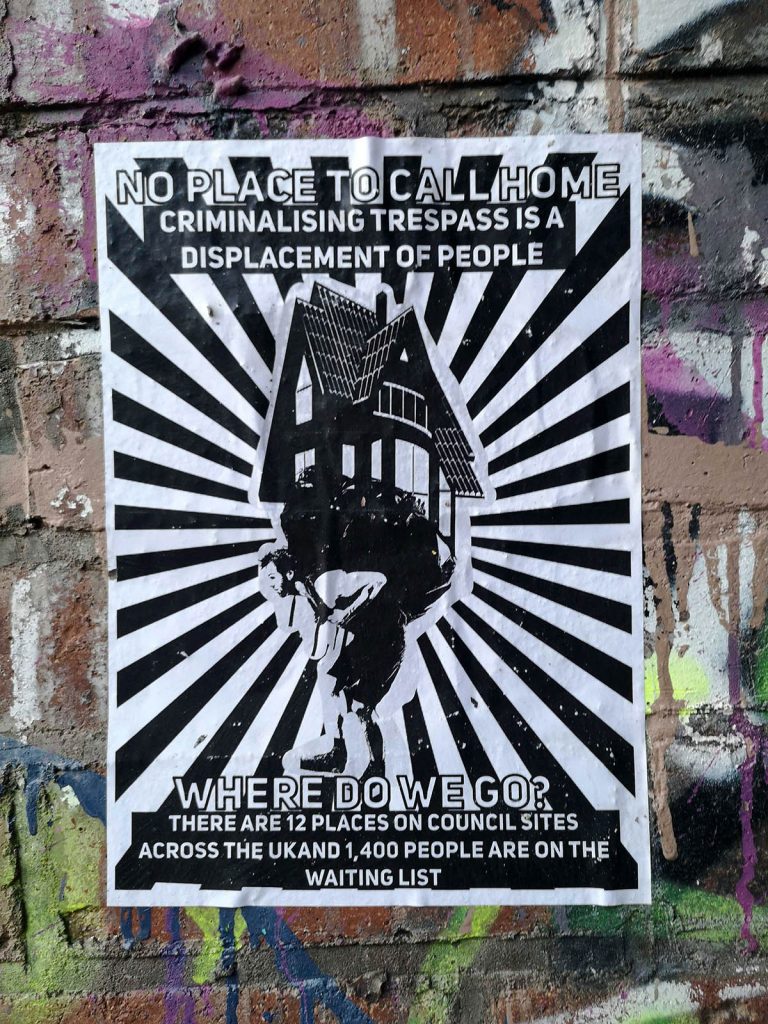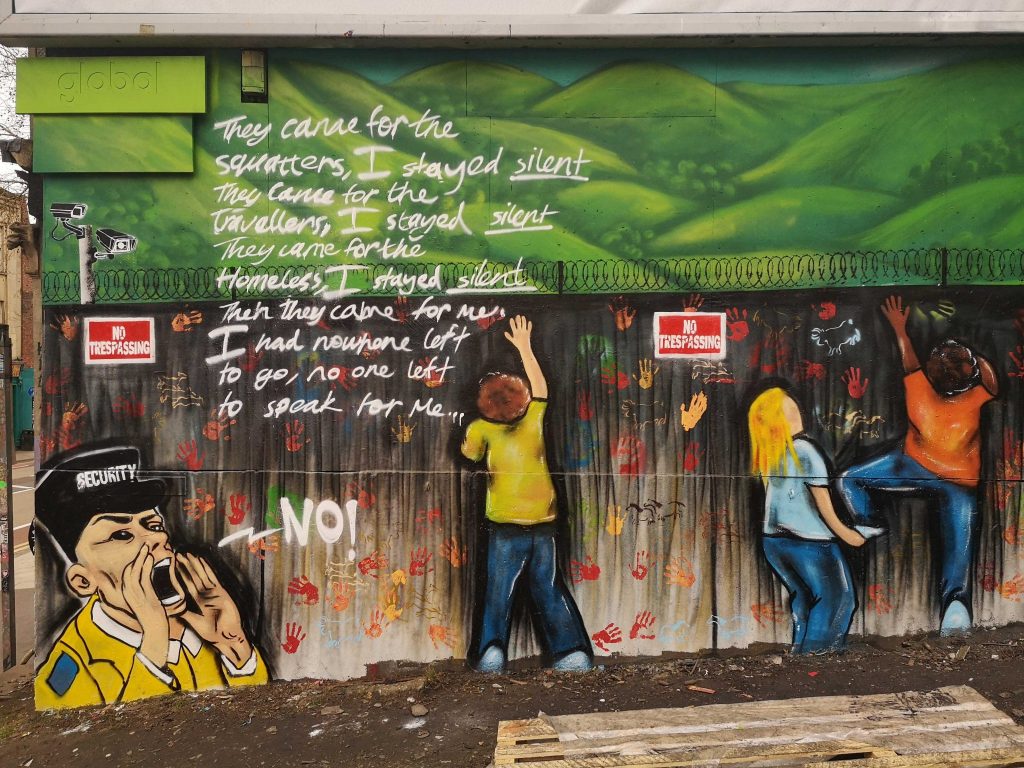
This is the first of a number of blogs around the government’s current attack on civil liberties, also known as the Police, Crime, Sentencing and Courts Bill 2021. This bill gleefully criminalises trespassers, non-violent protesters (if they are sufficiently ‘annoying’), gypsies and travellers, statue topplers and people who live in vehicles – a cheaper and easier solution than trying to address their actual needs and legitimate concerns. The cherry on this legislative shit-cake is that the rhetoric surrounding it deliberately stokes fear and division within our communities, which will then be used to justify more police power and control and an increase in state surveillance.
We’ll be looking in more depth at some of these issues over the next couple of weeks, but today let’s talk about trespass.
In the autumn of 2019, the Home Office opened a consultation (until 4 March 2020), about strengthening police powers to deal with unauthorised encampments. This was also included in the Conservative manifesto, along with an intention to ‘criminalise intentional trespass’. Despite widespread hostility to this proposal across the board, from the British Mountaineering Council to the police to the Council of Northern Caving Clubs, they have now proudly announced their plans to criminalise people for not being landowners.
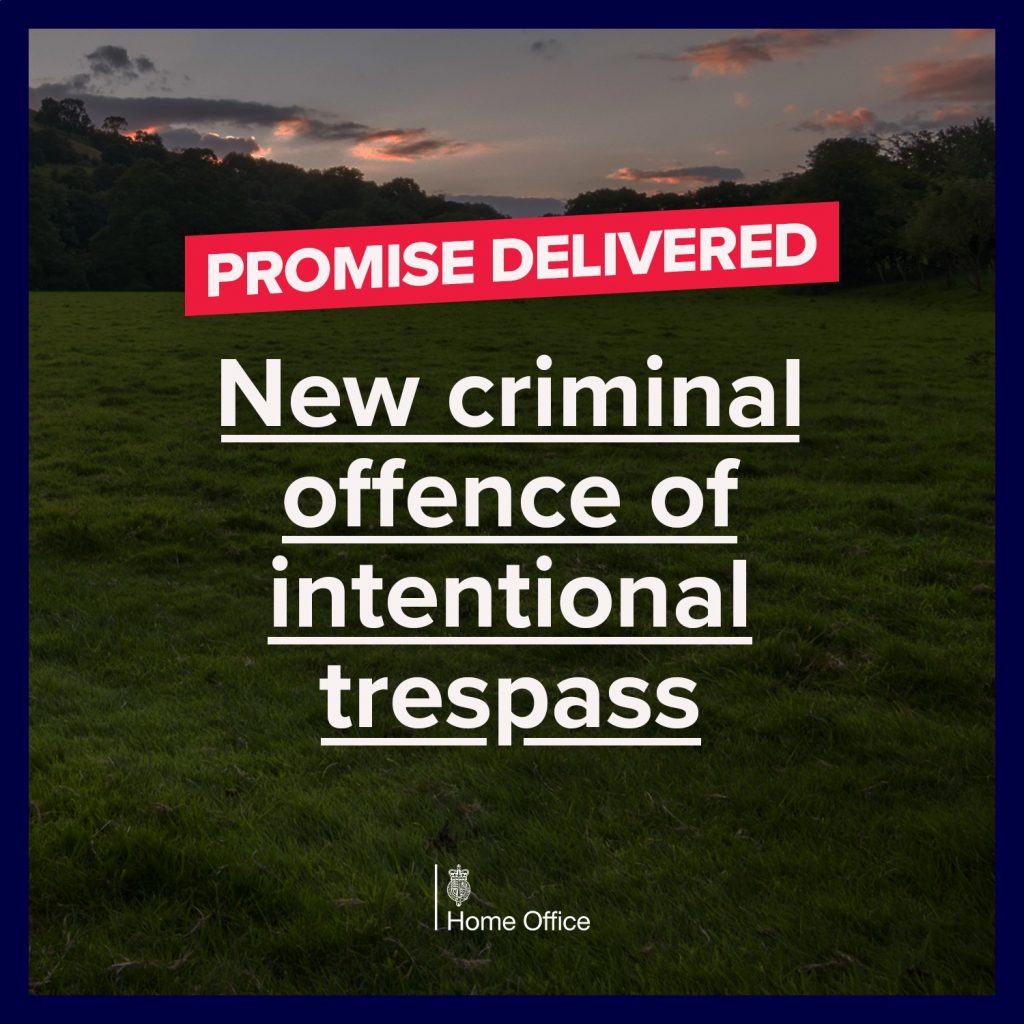
The PRSC rejects the anti-trespass provisions in this horrible bill, which prioritises the rights of the country’s small number of landowners over the rights of everyone else – as if they needed more support.
Author and campaigner for land justice Nick Hayes had this to say about the governments plans:
“The governments plans to criminalise trespass have long been in the pipeline, and they have chosen now, during a global pandemic, to breach the human rights of an already marginalised community of travellers. The police themselves have said they neither need or want to upgrade trespass into the criminal sphere, and that the real solution for travellers is to provide more sites where they can safely and happily reside, sites that were removed by the same government austerity and policy that now seeks to criminalise them. While the bill is a bigoted attack on travellers, it looks set to affect protestors and wild campers alike, and make the countryside an even more forbidding place to be. As ever, bigotry against a marginalised community is being used to push through a bill that will limit the freedoms of us all.”
Or how about this reaction from Gemma Cantelo, the head of policy and advocacy at the Ramblers Association:
“We’re worried that these proposals are the thin edge of the wedge, resulting in an erosion of people’s rights to access and enjoy the countryside. It’s vital that the access rights that the Ramblers and others have fought for over the years are protected.”
Here is the full response from the ramblers to the consultation:
- We oppose the criminalisation of trespass and any measures that deter people from accessing the outdoors. This would be a major change in the law – and could have a significant impact on people’s ability to access the countryside.
- Rules to criminalise trespass should remain limited to very specific circumstances. This should only apply where, for example, where there is an immediate risk to public safety -such as on railway land where trespass is currently a criminal offence – and there is no reasonable alternative. We do not believe this threshold has been reached.
- A compelling case for changing trespass rules has not been made. Three quarters of police forces believe that their current powers in relation to unauthorised encampments are sufficient and proportionate, while 84% are opposed to the criminalisation of unauthorised encampments.
- Walking in the countryside should not put you at risk of committing a crime. Criminalisation of trespass would put walkers and others at risk of committing an offence. People may have to leave a footpath to get past an obstruction or have sincerely held beliefs that they have a right of access.
- The proposals threaten ‘wild’ camping and the right to protest. The lack of clarity within the current proposals risk criminalising other activity, including wild camping and people’s legitimate right to protest. Our current rights to access the outdoors have been built on the legitimate protest of previous generations.
And that’s just the erosion of our right to move around outside. Groups that represent travellers and vehicle dwellers recognise that this is an undisguised attack on them and their way of life. As these groups have pointed out, the law requires them to demonstrate their nomadic status in order to receive basic rights, while now criminalising their ability to move on.
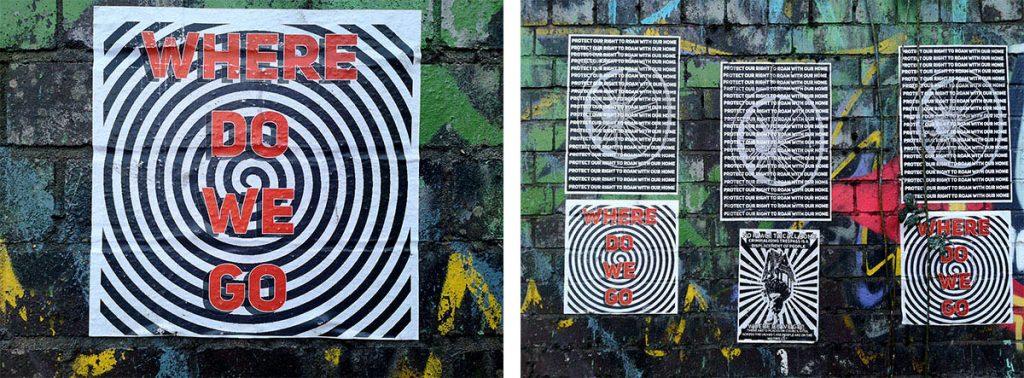
“You are criminalising a problem that has been created by the failings of a political will to deliver appropriate accommodation,”
Joseph P Jones from the Gypsy Council, in a Facebook comment left on Priti Patel’s Facebook page.
Read more about the effect of this bill on traveller communities here.
For those of us with long memories, this all feels very similar to the criminalisation of squatting by the coalition government ten years ago, with everyone from the police to Shelter rejecting the plans but the government pushing ahead anyway in the interest of protecting property owners from the victims of the housing crisis.
Just as that law was promoted as a way to stop people breaking into your house (already a crime) and stealing your property (ditto) but actually left homeless people freezing to death outside disused buildings, so this law aimed at ‘protecting communities from illegal encampments’ will end up being used to criminalise everyone from environmental protesters to wild campers. Alongside this erosion of civil liberties is the clear support for racist and bigoted attitudes towards gypsies and travellers.
The vast majority of this country is fenced off from the vast majority of the population. First the Tories made the fences bigger and the locks thicker, now they are adding the guard dogs, razor wire and CCTV. How much longer can they continue to criminalise the population for the crimes of poverty and vagrancy?

We have received this missive from a local activist with news about this law and ways to resist it…
“These laws, framed as a xenophobic crackdown on the travelling community could ‘make us strangers in our own land’, unable to access our ancient right to roam the British countryside freely. With the majority of the land in the UK being privately owned, this law proposes a serious threat to our access to nature, an ever-increasing necessity highlighted by the crowded public spaces throughout lockdown, and our increasingly urgent need to heal both ourselves and our planet.
Furthermore, the anti-trespass law will allow police hugely disproportionate power to criminalise any individual seeking to build a life outside of the unsustainable structures of society, giving police the ability to instantly seize peoples homes, whether the land they are parked on is private or not. The powers mean that regardless of prior agreements to use empty spaces or park up in friends’ fields, it is left up to the police officer’s discretion as to whether people using unused buildings, sleeping on the streets or dwelling in vehicles face criminal charges and the loss of their homes. This new act is not only a direct and discriminatory assault on marginalised travelling communities, it represents a much wider threat of the new right gaining traction, and our rights and freedoms being fast eroded.
RAT (Resist Anti-Trespass) have issued a call to action on March 23rd to peacefully resist these proposed new powers.
This linktree has been created to collate resources and share information – https://linktr.ee/wheredowego
If you have any art, graphics, knowledge or support, if you would like to download posters to print and share info, or if you would simply like to learn more about these new powers, please visit the link above. If you wish to stand in solidarity against these new, unjust and unlawful powers, then please keep your eyes and ears peeled for response to the call to action in Bristol on Tuesday 23rd March. See you on the streets, and in the fields!”
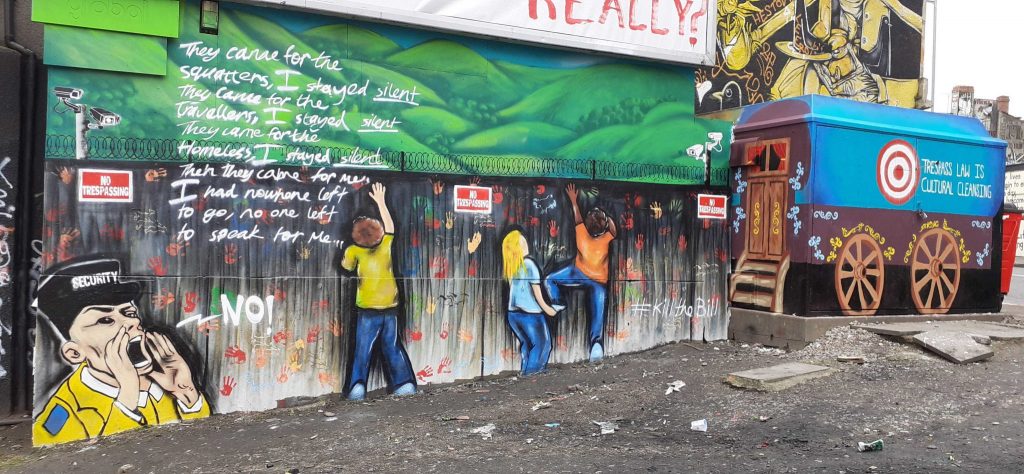
The time has come to up-skill ourselves and begin the fight back.
Learn more:
School of Activism – Who Owns the Land? – a talk about land justice from land rights campaigner Nick Hayes and Stokes Croft Land Trust director Keith Cowling
School of Activism – Know Your Rights: Vehicle Dwelling and the Law – a presentation from the Vehicles 4 Change pressure group about lessons learned over their last year of representing vehicle dwellers
School of Activism – Know Your Rights: A Guide to Squatting in Bristol – an informal guide from the Bristol Housing Action Movement
The Book of Trespass – an in depth look at these issues by Nick Hayes
